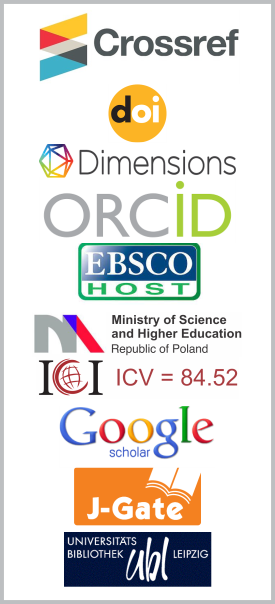Stochastic Integrals in Discounting Proactive Operations
DOI:
https://doi.org/10.26713/jims.v13i1.1511Keywords:
Proactivity, Stochastic integral, Infinite divisibility, Discounting modelAbstract
Proactivity constitutes a structural factor of decision making in many practical disciplines. It is generally adopted that stochastic discounting models substantially contribute to the development and implementation of proactive operations. The paper concentrates on the formulation of a stochastic discounting model by incorporating a stochastic integral and a positive random variable. Moreover, the paper provides interpretation of the stochastic discounting model in proactive environments.
Downloads
References
Artikis C.T and Artikis, P.T., Probability Distributions in Risk Management Operations, Springer, Intelligent Systems Reference Library, 2015.
Artikis, C.T., (2018), Stochastic Integrals and Power Contractions in Bernoulli Selections, Journal of Informatics and Mathematical Sciences, Vol. 10, No. 3, pp. 411 - 415.
Artikis, C.T., (2020), Developing Control Operations for Information Risk Management by Formulating a Stochastic Model, Journal of Informatics and Mathematical Sciences, Vol.12, No. 2, pp. 135 -148.
Artikis P.T. and Artikis, C.T., (2020), Incorporating Random Contractions in Decision Support Systems for Facilitating Synergies of Proactivity and Extremity, Journal of Informatics and Mathematical Sciences, Vol. 12, No.1 , pp. 69 – 81.
Dufresne, D., (1989) Stability of pension systems when rates of return are random, Insurance: Mathematics and Economics, Vol. 8, pp. 71-76.
Galambos, J. and Simonelli, I. (2004) Products of Random Variables, Marcel Dekker, New York
Harrison, I.,(1977), Ruin problems with compounding assets, Stochastic Processes and their Applications, Vol. 5, pp. 67-79.
Keilson, J. and Steutel, F., (1974), Mixtures of distributions, moment inequalities and measures of exponentiality and normality, Ann. Probab. 2, pp. 112-130.
Lukacs, E., (1969), Characterization of stable processes, J. Appl. Prob. 6, pp.409– 418.
Lukacs, E., Characteristic Functions, 2nd edition, Griffin, London, 1970.
Perry, D. and Stadje, W., (2000) Risk analysis for a stochastic cash management model with two types of customers, Insurance: Mathematics andEconomics, Vol. 26 (1), pp. 25-36.
Pinsky, M. and Karlin, S. (2011) An Introduction to Stochastic Modeling, 4th ed., Academic Press, Oxford.
Ramachandran, B., Advanced Theory of Characteristic Functions, Statistical Publishing Society, Calcutta, 1967.
Schwarzlander, H. (2011) Probability Concepts and Theory for Engineers, John Wiley & Sons, New York.
Steutel, F., (1979) Infinite Divisibility in Theory and Practice. Scandinavia Journal of Statistics, 6, pp. 57-64.
Steutel, F. and Van Harn,K., Infinite Divisibility of Probability Distributions on the Real Line, Marcel Dekker, Inc., New York, 2004.
Tijms, H. Stochastic Modelling and Analysis. New York: John Wiley& Sons, 1988.
Ushakov, N.,Selected Topics in Characteristic Functions, Brill Academic Pub., Tokyo, 1999.
Downloads
Published
How to Cite
Issue
Section
License
Authors who publish with this journal agree to the following terms:- Authors retain copyright and grant the journal right of first publication with the work simultaneously licensed under a CCAL that allows others to share the work with an acknowledgement of the work's authorship and initial publication in this journal.
- Authors are able to enter into separate, additional contractual arrangements for the non-exclusive distribution of the journal's published version of the work (e.g., post it to an institutional repository or publish it in a book), with an acknowledgement of its initial publication in this journal.
- Authors are permitted and encouraged to post their work online (e.g., in institutional repositories or on their website) prior to and during the submission process, as it can lead to productive exchanges, as well as earlier and greater citation of published work.




